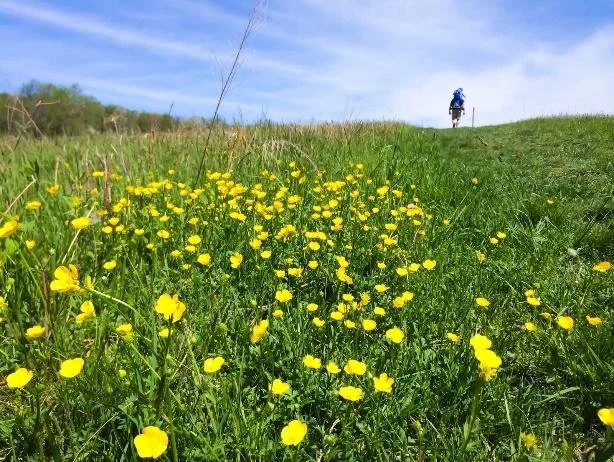Tracking Flowers and Fauna Along the Appalachian Trail through Community-Science with iNaturalist
By Danielle Guttman, AMC’s Mid-Atlantic Conservation Outreach Manager
The Appalachian Mountain Club has launched a community-science project, Flowers and Fauna Along the Appalachian Trail Corridor, through a free app called iNaturalist. This project is a smartphone-oriented extension of AMC’s long-term monitoring program, Mountain Watch, which has been tracking how plants are responding to climate change since 2004.
Our project, Flowers and Fauna along the Appalachian Trial Corridor, is a great tool for allowing community members to contribute to real scientific research. As of July 8th, 2022, our project has had 19,102 observations made of 1,749 different species along the corridor. We rely on the help of hikers, dog-walkers, backpackers, and other outdoor enthusiasts to tell us what they’ve seen along the trail corridor by taking photos of buds, flowers, and fruits and uploading them to iNaturalist.
AMC’s scientists will then use the photos that you upload, confirm the identity of key plants, and code their flowering and fruiting status. The more photos that are posted, the better we will be able to understand the large variability that is inherent in mountain environments. This will help to determine whether the AT corridor is a climate refugia – that is, if it’s more resilient to climate change than other landscapes. The landscape of the Appalachian Trail is especially important for understanding how plant phenology – the timing of plant life-cycle events such as flowering and fruiting – is related to climate and how changes across the Appalachian Trail’s climate gradients could impact ecosystem resilience and biodiversity.
The iNauralist app can be found in the Apple App Store for iPhones, or in the Google Store for Android devices. Using the app, you can identify almost any living animal or plant. Your mobile device will also automatically geotag the image, assigning its location, and if you’re not sure of the name of the species of plant you have observed, the community on iNaturalist, including AMC’s own scientists, will help confirm or identify the plant. You don’t need to be an expert to identify key species and contribute to this project.
You can become a Citizen Scientist and support AMC’s research by downloading iNaturalist on your smart phone and joining our Flowers and Fauna of the Appalachian Trail project. Come contribute important data while you explore the outdoors!
If you’d like more information on how to get involved or have questions about the project, you can contact AMC’s Mid-Atlantic Conservation Outreach Manager, Danielle Guttman, at dguttman@outdoors.org.


